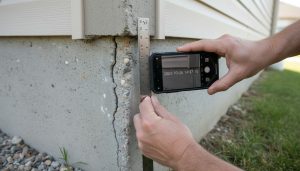What are the legal requirements for new
homeowners in Ontario?
New homeowner in Ontario? Here are the legal requirements you can’t afford to miss — read this before you sign the final papers.
Buying a home in Ontario isn’t just paperwork — it’s a legal process with mandatory steps. Miss one and you risk fines, unexpected taxes, or a title dispute. This guide cuts to the point and gives a clear, actionable checklist for new homeowners in Ontario.
Quick Checklist: Legal Requirements for New Homeowners in Ontario
- Land Transfer Tax: Pay provincial land transfer tax at closing. If buying in Toronto, add municipal land transfer tax. Budget for this — it’s due at registration.
- Registered Title / Deed: Ownership must be registered with the Ontario Land Registry (Land Titles or Registry system). Your lawyer handles registration and records the deed.
- Mortgage Registration: Lenders require mortgage registration. Expect legal fees and registration charges.
- Title Insurance or Lawyer’s Title Search: Get title insurance or a formal title search to protect against fraud, liens, or undisclosed claims.
- Closing Documents: Keep the Agreement of Purchase and Sale, Statement of Adjustments, deed, mortgage documents, and closing statement. These are legal proof of ownership and financial obligation.
- Home Insurance: Mortgage lenders require proof of home insurance effective on closing day.
- Tarion / New Home Warranty: If you bought a newly built home, check Tarion warranty coverage and registration. Ensure the builder has registered the home and you received warranty documents.
- HST Rules: HST usually applies to new homes and some substantially renovated properties. Confirm if HST applies and whether you’re eligible for rebates.
- Condo Buyers: Request a status certificate and review condo documents before closing. This is essential legal due diligence.
- Municipal Rules & Permits: Any renovations or additions require permits. Check local bylaws to avoid fines or forced removals.
Step-by-step Action Plan Before and On Closing Day
- Hire a licensed Ontario real estate lawyer early. They’ll handle title searches, prepare documents, and register transfers.
- Arrange title insurance and review the title report. Resolve any liens or encumbrances before closing.
- Confirm land transfer tax and arrange funds for closing (lawyer’s trust holds funds).
- Provide proof of home insurance to your lawyer and lender for closing day.
- Get and save the Statement of Adjustments — it shows prorated taxes, utilities, and closing costs.
- After closing, confirm registration via your lawyer and keep a digital and physical copy of the deed and mortgage documents.
Common Costs & Documents to Keep
- Costs: Land transfer tax, legal fees, mortgage registration fees, title insurance, HST (if applicable), property insurance, and closing adjustments.
- Documents: Agreement of Purchase and Sale, deed/transfer, mortgage documents, title insurance policy, Tarion warranty (new builds), status certificate (condos), and final closing statement.

Final Notes — Avoid Mistakes
Follow this checklist. Use a lawyer and get title insurance. Check Tarion for new homes, and get a status certificate for condos. These are not optional if you want clean, uncontested ownership.
Need a local expert to walk you through every legal and documentation step? Contact Tony Sousa for clear, no-nonsense guidance: tony@sousasells.ca | 416-477-2620 | https://www.sousasells.ca
Keywords: legal requirements for new homeowners in Ontario, land transfer tax Ontario, title insurance Ontario, Tarion warranty, condo status certificate, closing documents Ontario, home ownership legal requirements




















